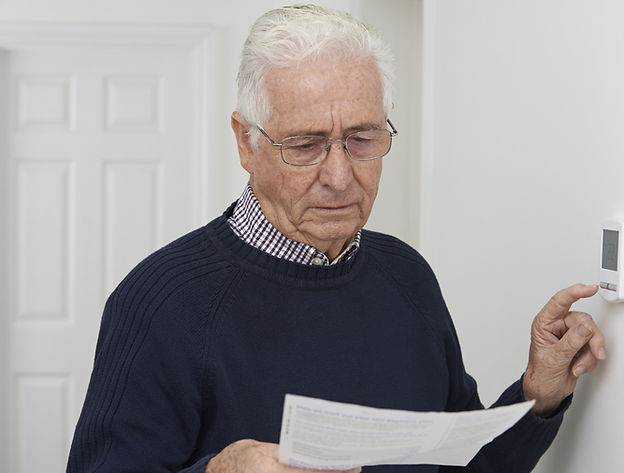Energy Debt Advice
Are You Struggling to Afford Your Energy Bills?
Are your energy costs spiralling out of control? Are you afraid to turn on the heating because you can’t afford to pay your energy bills? Perhaps you’re making hard choices between heating or affording essentials like food and clothing.
You’re not alone. Millions of people in the UK are living in fuel poverty and this number continues to increase, due to rising energy bills and the cost of living crises. You might be wondering if there is an end in sight. You may even have considered stopping your direct debit with your energy supplier.
In fact, some campaigns have been advising energy consumers to do just that. But what are the consequences of doing so, and are there better solutions out there?
What Happens If I Stop Paying My Energy Bills?

What Happens If I Stop Paying My Energy Bills?
Energy Contract Customers: If you stop paying your energy bills, the debt will start building up right away. It’s important that you understand your energy supplier’s terms and conditions and the consequences of running up debt with them.
Enhanced Comfort: If you miss payments on your account, this may lead to penalties from your supplier, such as loss of discounts or the installation of a prepayment meter.
Prepayment Meter Customers: If you fail to top-up your meter, your energy supplier could cut off your supply completely. Daily standing charges will also build up leading to more debt.
The Impact on Your Finances and Credit Rating
Defaults on your credit report
Involvement of debt collection agencies
Potential county court judgements – these stay on record for six years and can have a severe impact on your credit rating
Difficulty in being approved for credit in the future, including mortgages, personal loans, and credit/store cards
Positive Steps You Can Take If You’re Struggling to Pay
Engage With Your Supplier
Contact your supplier as soon as you run into difficulties. You’ll find their details on your most recent bill or on their website. Many companies now offer an online chat service if you’d rather this option.
Provide meter readings if possible. Your energy company will do what they can to help. After all, they want to keep you as a customer.
Explore the Options Available to You
Negotiate a payment plan
Extend the time to make a payment
Request a smaller amount to pay now and let you settle the rest later
You can request an account review to ensure your bill is accurate
You can inform them of any vulnerable individuals or health conditions in the household
You can lodge a complaint about meter or supplier issues for possible compensation
Paying Only Part of the Bill
Difficulty Engaging with Your Supplier?
There are still some things you can do:
Seek professional energy or debt advice. National debt services like StepChange or National Debtline can offer debt management plans and a little breathing space.
Contact your local Citizens Advice Bureau or check if you are eligible for the Priority Services Register for a faster response.
What Additional Support is Available?
Many people don’t realise they are entitled to benefits. For instance, the Warm Home Discount and Winter Fuel Payment can help those on a low income. Make sure you’re not missing out.
Remember, communication is so important. Your energy company won’t realise you are struggling unless you let them know. Nobody will judge you.
By the end of the call, you could have arranged a payment plan that allows you to keep your home warm and comfortable while managing your energy costs.
How Energy Saving Grants Can Help
Another option you may want to consider to keep your energy costs in check is to apply for an energy saving grant.
From improving insulation to replacing your heating system, energy efficiency grants can help you to heat your home for less.
Our energy efficiency advisors would be able to inform you if you are eligible for a grant. Please complete your contact details in the grant checker and an advisor will be in touch.
Check Your Eligibility Using Our Grant Checker
Please ensure that all information provided below is 100% accurate. Any errors in your personal information could delay or prevent you qualifying for a government funded grant
Please note that you do not necessarily need to be in receipt of tax credits or benefits as we still may be able to obtain funding for you via your Council or through other funding schemes.
